1 Chronicles 3 meaning explained in AI Summary
1 Chronicles Chapter 3 primarily focuses on genealogies, specifically the descendants of King David.
- David's Sons: The chapter begins by listing the nineteen sons born to David during his reigns in Hebron and Jerusalem. This includes notable figures like Amnon, Absalom, and Solomon.
- Solomon's Line: The lineage then follows Solomon, highlighting his son Rehoboam and continuing down through the kings of Judah. This section traces the royal line all the way to the Babylonian exile.
- Exilic and Post-Exilic Generations: The chapter continues by listing the descendants of Jeconiah (Jehoiachin), the king taken captive to Babylon. It traces several generations born during and after the exile, concluding with Anani.
Key Points:
- Emphasis on Lineage: The chapter emphasizes the continuation of David's line, even through periods of turmoil and exile. This reinforces the importance of Davidic kingship in Israelite history and faith.
- Historical Record: The genealogies serve as a historical record, providing valuable information about family lines and chronology.
- Messianic Implications: While not explicitly stated, the detailed genealogy of David's descendants points forward to the coming Messiah, promised to come from David's line.
Overall, 1 Chronicles 3 serves as a genealogical bridge, connecting the glorious reign of David to the difficult period of exile and offering hope for the future restoration of Israel.
1 Chronicles 3 bible study ai commentary
1 Chronicles 3 traces the lineage of David, the central figure in Israel's royal history. It meticulously documents his sons born in Hebron and Jerusalem, and then follows the succession of the kings of Judah down to the period of the Babylonian exile and beyond. The chapter's primary purpose is to establish the unbroken continuity of the Davidic line, reinforcing God's covenantal promise. It serves as a historical anchor and a beacon of hope for the post-exilic community, affirming that God's plan for a Davidic ruler, the future Messiah, remained intact despite national sin and catastrophe.
1 Chronicles 3 context
Chronicles was written for the Jewish community returning from Babylonian exile. They were a people rebuilding their nation, identity, and temple. This genealogy was not merely a historical record but a vital theological statement. It connected the present, struggling generation directly to the glorious past of King David and, more importantly, to the future hope promised in the Davidic Covenant (2 Sam 7). It provided proof of legitimacy and a tangible reason to believe God had not abandoned His chosen people or His promises.
1 Chronicles 3:1-4
Now these were the sons of David who were born to him in Hebron: the firstborn, Amnon, by Ahinoam the Jezreelitess; the second, Daniel, by Abigail the Carmelitess; the third, Absalom the son of Maacah, the daughter of Talmai king of Geshur; the fourth, Adonijah the son of Haggith; the fifth, Shephatiah, by Abital; the sixth, Ithream, by Eglah his wife. Six were born to him in Hebron, and he reigned there seven years and six months.
In-depth-analysis
- A Political and Covenantal List: This list establishes the foundation of David's royal family. The mention of each son's mother highlights the political alliances David made during his formative years as king in Hebron, a crucial political center before Jerusalem.
- Daniel vs. Kileab: The second son is named Daniel here, whereas he is called Kileab in 2 Samuel 3:3. This is likely not a contradiction but a case of having two names, a common practice. "Kileab" may have been a personal name, while "Daniel" (meaning 'God is my Judge') was a more formal or throne-related name. Some scholars suggest it was a scribal correction to avoid the name Kileab's association with Caleb, implying he was not David's son.
- Absalom's Royal Lineage: Absalom's mother, Maacah, was a princess from Geshur, an Aramean kingdom. This royal, non-Israelite heritage is specifically noted, perhaps foreshadowing his later ambition and conflict.
- "Eglah his wife": The specific designation of Eglah as "his wife" is unique in the list. Jewish tradition (Targum) speculates that Eglah was another name for Michal, Saul's daughter, whom David had reclaimed. This would theologically and politically unite the house of Saul with the house of David. However, there is no direct biblical support for this identification.
- Reign Duration: The precise mention of "seven years and six months" reinforces the historical accuracy and authority of the Chronicler's record.
Bible references
- 2 Samuel 3:2–5: "And sons were born to David in Hebron: his firstborn was Amnon... and his second, Chileab..." (The primary source text and parallel list for David's sons in Hebron).
- 2 Samuel 2:11: "And the time that David was king in Hebron over the house of Judah was seven years and six months." (Confirms the duration of his reign in Hebron).
Cross references
- 2 Sam 13 (Amnon and Absalom's tragic stories), 1 Kgs 1-2 (Adonijah's attempt to seize the throne).
1 Chronicles 3:5-9
And these were born to him in Jerusalem: Shimea, and Shobab, and Nathan, and Solomon, four by Bath-shua the daughter of Ammiel; and Ibhar, and Elishama, and Eliphelet, and Nogah, and Nepheg, and Japhia, and Elishama, and Eliada, and Eliphelet, nine. All these were the sons of David, besides the sons of the concubines, and Tamar was their sister.
In-depth-analysis
- Bath-shua the daughter of Ammiel: Bathsheba is here called Bath-shua. Her father, called Eliam in 2 Samuel 11:3, is here called Ammiel. The names are theophoric equivalents, with the divine element ('El' or 'Am') simply reversed (Eli-am = 'God of my people'; Ammi-el = 'My people's God'). The change of Bathsheba's name might be a pious choice to avoid the sound of sheba ('oath'), connected to the sinful affair.
- Two Lists of Sons: The sons born in Jerusalem are divided into two groups: the four by Bathsheba and the subsequent nine. This emphasizes the special status of Bathsheba's sons, from whom the heir, Solomon, comes.
- The Royal and Messianic Lines: This list is crucial for Messianic prophecy. Solomon is the ancestor of the royal line leading to Jesus in Matthew's gospel. His brother Nathan is the ancestor named in Luke's gospel. Thus, Jesus is a "Son of David" through both a royal (legal) and a natural line.
- Tamar's Inclusion: In a genealogy overwhelmingly focused on male heirs, the explicit mention of "Tamar was their sister" is striking. It serves as a reminder of the sin within David's house (her rape by Amnon) and the subsequent turmoil and judgment that followed, yet it also shows that God's plan of succession through Solomon was not thwarted.
- Sons of the Concubines: The brief, unnamed mention of sons from concubines establishes a clear hierarchy of inheritance and legitimacy within the royal family.
Bible references
- Matthew 1:6: "...And David was the father of Solomon by the wife of Uriah..." (Traces the Messianic line through Solomon).
- Luke 3:31: "...the son of Nathan, the son of David," (Traces the Messianic line through Nathan, Solomon's brother).
- 2 Samuel 5:14-16: "And these are the names of those who were born to him in Jerusalem: Shammua, and Shobab, and Nathan..." (A parallel list with minor variations in spelling and number).
- 2 Samuel 13:1: "Now Absalom, David's son, had a beautiful sister, whose name was Tamar..." (Provides the full narrative context for Tamar's mention).
Cross references
- 2 Sam 12:24 (The birth of Solomon), Psa 51 (David's psalm of repentance over Bathsheba).
Polemics: The minor differences in names and the number of sons between this list and the one in 2 Samuel 5 (e.g., Elishama and Eliphelet are repeated) are generally attributed by scholars to scribal transmission issues over centuries or the possibility of one child dying and a later one being given the same name. They do not represent a substantial contradiction but reflect the complexities of preserving ancient records.
1 Chronicles 3:10-16
The son of Solomon was Rehoboam, Abijah his son, Asa his son, Jehoshaphat his son, Joram his son, Ahaziah his son, Joash his son, Amaziah his son, Azariah his son, Jotham his son, Ahaz his son, Hezekiah his son, Manasseh his son, Amon his son, Josiah his son. The sons of Josiah: Johanan the firstborn, the second Jehoiakim, the third Zedekiah, the fourth Shallum.
In-depth-analysis
- A Purely Royal Line: This section lists the ruling kings of Judah from Solomon to the fall of Jerusalem. It omits the kings of the northern kingdom of Israel, as the Chronicler's focus is solely on the legitimate Davidic line through which the covenant promise flows.
- Formulaic Structure: The repetitive "his son" (beno) structure emphasizes the direct, father-to-son succession, underscoring the stability and legitimacy of the dynasty.
- Omission in Matthew: Matthew's genealogy (Matt 1:8) famously omits Ahaziah, Joash, and Amaziah. This was likely done to create a schematic structure of 14 generations and possibly as a theological statement, skipping the generations immediately following the wicked alliance between the house of David and the idolatrous house of Ahab (via Athaliah).
- Josiah's Sons: The listing of Josiah's sons is complex and reflects the political chaos of Judah's final days. The order here (Johanan, Jehoiakim, Zedekiah, Shallum) is not chronological by age or reign.
- Shallum is Jehoahaz (Jer 22:11), who reigned briefly before Jehoiakim.
- Jehoiakim was placed on the throne by Egypt.
- Zedekiah (originally Mattaniah) was the last king, placed on the throne by Babylon.
- Johanan is not mentioned in Kings and likely died before he could reign.
Bible references
- Matthew 1:7-11: "Solomon the father of Rehoboam, and Rehoboam the father of Abijah..." (A direct parallel, forming a core part of Jesus' royal genealogy).
- 2 Kings 8–24: The entire narrative history of these kings of Judah, providing the stories behind these names.
- Jeremiah 22:11: "For thus says the Lord concerning Shallum the son of Josiah... 'He shall not return there anymore...'" (Identifies Shallum as Jehoahaz).
- 2 Kings 23:30-24:18: Narrates the chaotic succession of Josiah’s sons (Jehoahaz/Shallum, Jehoiakim, and Zedekiah).
Cross references
- 2 Chr 21-36 (The Chronicler's own narrative of these kings), Isa 7 (Prophecy during Ahaz's reign), Isa 36-39 (Events of Hezekiah's reign).
1 Chronicles 3:17-24
And the sons of Jeconiah, the captive: Shealtiel his son, Malchiram, Pedaiah, Shenazzar, Jekamiah, Hoshama, and Nedabiah. And the sons of Pedaiah: Zerubbabel and Shimei. And the sons of Zerubbabel: Meshullam and Hananiah, and Shelomith was their sister; and Hashubah, Ohel, Berechiah, Hasadiah, Jushab-hesed, five. And the sons of Hananiah: Pelatiah and Jeshaiah, the sons of Rephaiah, the sons of Arnan, the sons of Obadiah, the sons of Shecaniah. And the sons of Shecaniah: Shemaiah. And the sons of Shemaiah: Hattush, Igal, Bariah, Neariah, and Shaphat, six. And the sons of Neariah: Elioenai, Hizkiah, and Azrikam, three. And the sons of Elioenai: Hodaviah, Eliashib, Pelaiah, Akkub, Johanan, Delaiah, and Anani, seven.
In-depth-analysis
- Hope After Exile: This section is the theological climax of the chapter. By listing Jeconiah (also Jehoiachin) "the captive" (assir) and his descendants, the Chronicler powerfully argues that the exile did not end the Davidic line. God's promise was still alive.
- The Shealtiel/Pedaiah Problem: Verse 17 lists Shealtiel as Jeconiah's son. Verse 18 lists Pedaiah as another son, and verse 19 names Zerubbabel as the son of Pedaiah. However, other texts (Ezra, Haggai, Matthew, Luke) all name Zerubbabel as the son of Shealtiel. The most accepted solution is a Levirate marriage (Deut 25:5-6): Shealtiel likely died childless, and his brother Pedaiah married his widow to raise up an heir. Thus, Zerubbabel was biologically Pedaiah's son but legally Shealtiel's son and heir.
- Zerubbabel: As the leader of the first return from exile and the governor who oversaw the temple's rebuilding, Zerubbabel is a key transitional and messianic-type figure. He represents the survival and renewal of the Davidic house.
- Genealogy into the Future: The list extends for several generations after Zerubbabel, possibly into the Chronicler's own time (~400 BC). This demonstrates that the line of David was present and accounted for in the post-exilic community, providing a living hope for the future fulfillment of the Davidic covenant.
- Textual Difficulty: Verses 21-24 are notoriously difficult to interpret due to manuscript variations and ambiguous Hebrew grammar (e.g., "the sons of Rephaiah, the sons of Arnan..."). It may indicate a list of parallel lines of descent or be a sign of textual corruption, but the overall point—the continuation of the lineage—remains clear.
Bible references
- Matthew 1:12: "And after the deportation to Babylon: Jeconiah was the father of Shealtiel, and Shealtiel the father of Zerubbabel." (Confirms the Messianic succession post-exile).
- Haggai 1:1: "...the word of the Lord by Haggai the prophet to Zerubbabel the son of Shealtiel, governor of Judah..." (Establishes Zerubbabel's role and parentage).
- Zechariah 4:9: "The hands of Zerubbabel have laid the foundation of this house; his hands shall also complete it." (Highlights Zerubbabel's key role as a type of the messianic builder).
- Jeremiah 22:30: "Thus says the Lord: 'Write this man [Jeconiah] down as childless... for none of his offspring shall succeed in sitting on the throne of David...'" (This "curse" is understood as meaning none would succeed him immediately as ruling king, not that his line would end. The curse is 'broken' or fulfilled in the person of Christ, who inherits the throne spiritually, not politically at that time).
Cross references
- Ezra 3:2, Neh 12:1 (Zerubbabel as son of Shealtiel), Luke 3:27 (Zerubbabel son of Shealtiel).
1 Chronicles 3 analysis
- A Tale of Two Lines: The chapter provides the ancestors for both of Jesus' genealogies. Matthew, focusing on Jesus as the promised King, uses the royal line through Solomon (v. 10). Luke, focusing on Jesus as the perfect Man and savior of all humanity, uses the line of David's other son, Nathan (v. 5). The lines converge at Shealtiel and Zerubbabel before diverging again. This shows how Jesus fulfills the Davidic heritage in its entirety.
- A Polemic Against Despair: The primary argument of the chapter is directed at the post-exilic community's potential despair. To those who thought the Davidic covenant was broken by exile, this list was proof of God's unwavering faithfulness (hesed). It showed the royal line was not extinct but was being sovereignly preserved.
- Genealogy of Grace: The list is not sanitized. It flows through David's sin with Bathsheba, the chaos of his sons, the wicked kings of Judah (like Manasseh), and the judgment of exile (Jeconiah "the captive"). This demonstrates that God's covenantal promise is not dependent on human perfection but on His grace, which works through and despite human failure. The presence of the line of David after exile is a pure act of grace.
- An Unfinished Story: The chapter ends with a list of descendants extending into the near-present of the original readers. It doesn't conclude with a king on the throne; it ends with an expectation. The list itself is an open-ended question: Who will be the ultimate fulfillment of this line? This sets the stage for the New Testament's answer in Jesus, the Son of David.
1 Chronicles 3 summary
1 Chronicles 3 serves as a crucial genealogical record affirming the continuity of the Davidic royal line. It meticulously lists David's sons, the succeeding kings of Judah, and, most importantly, traces the lineage beyond the Babylonian exile through Zerubbabel. This demonstrates God's unbreakable faithfulness to His covenant with David, providing the post-exilic community with a tangible link to their past and a firm foundation for their future messianic hope.
1 Chronicles 3 AI Image Audio and Video
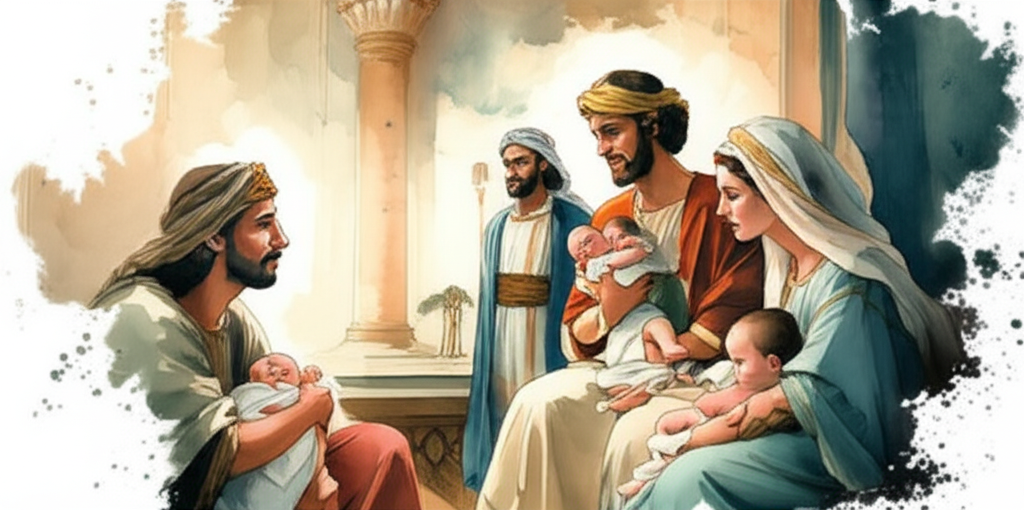

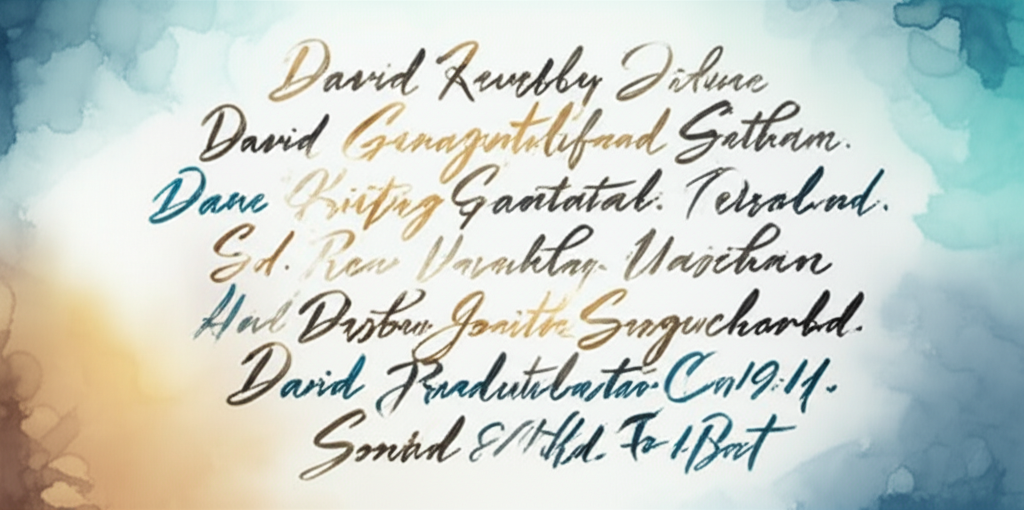


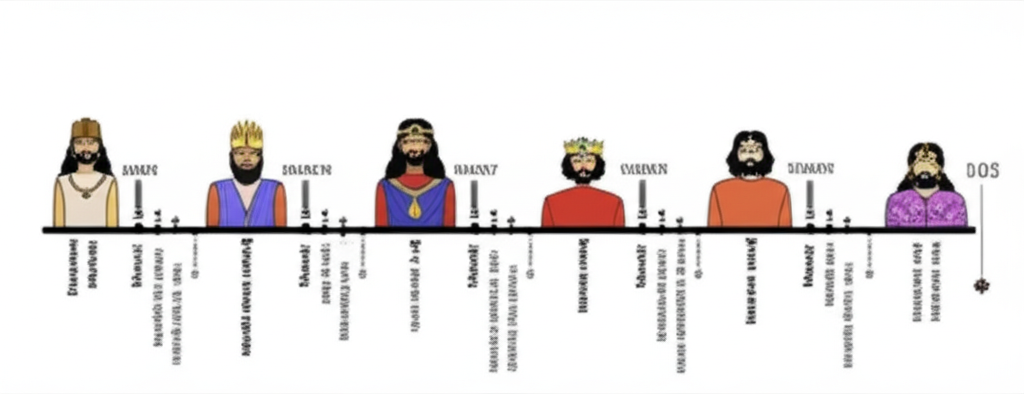
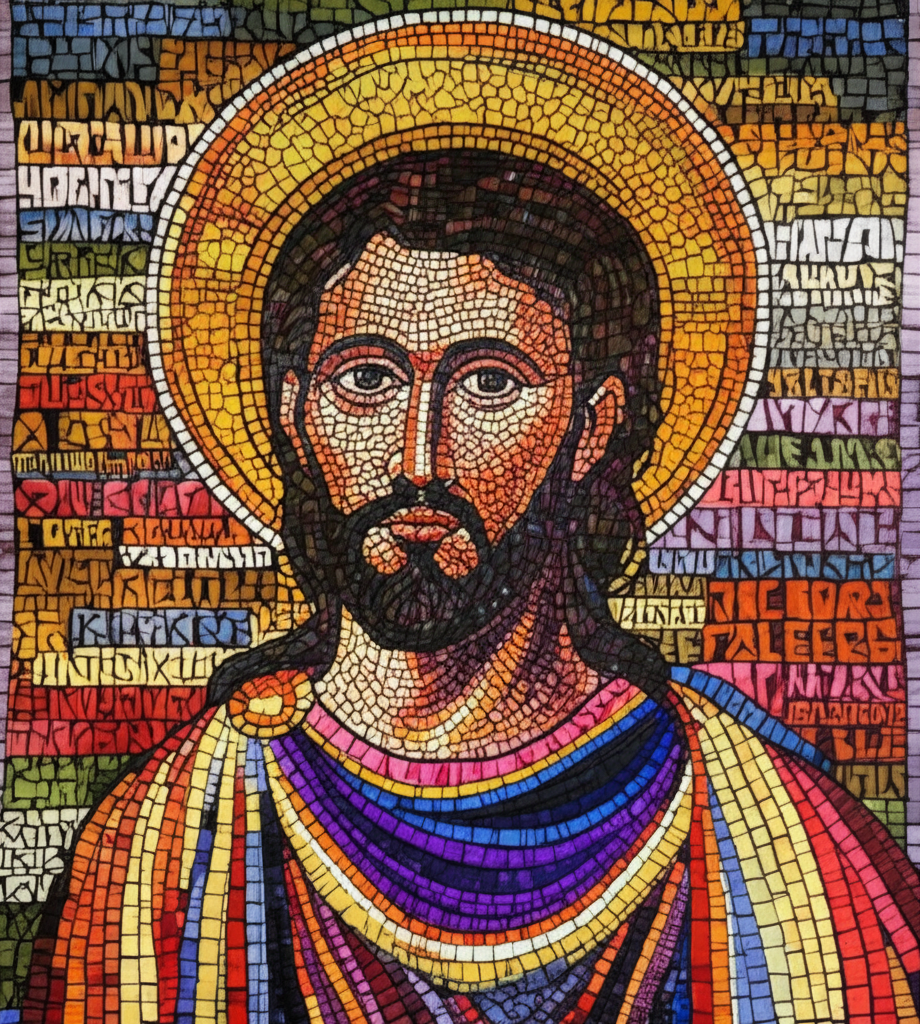
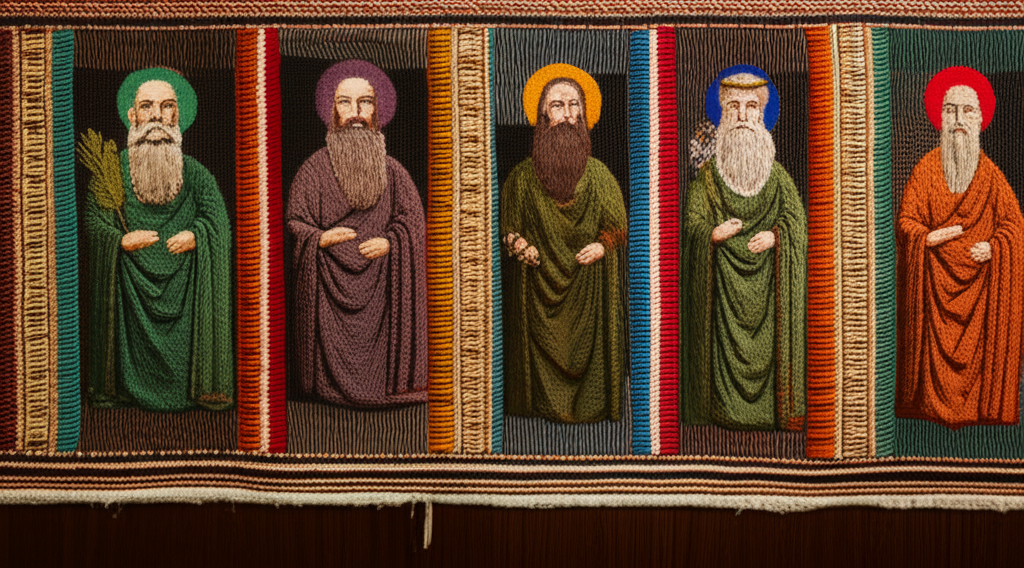

1 Chronicles chapter 3 kjv
- 1 Now these were the sons of David, which were born unto him in Hebron; the firstborn Amnon, of Ahinoam the Jezreelitess; the second Daniel, of Abigail the Carmelitess:
- 2 The third, Absalom the son of Maachah the daughter of Talmai king of Geshur: the fourth, Adonijah the son of Haggith:
- 3 The fifth, Shephatiah of Abital: the sixth, Ithream by Eglah his wife.
- 4 These six were born unto him in Hebron; and there he reigned seven years and six months: and in Jerusalem he reigned thirty and three years.
- 5 And these were born unto him in Jerusalem; Shimea, and Shobab, and Nathan, and Solomon, four, of Bathshua the daughter of Ammiel:
- 6 Ibhar also, and Elishama, and Eliphelet,
- 7 And Nogah, and Nepheg, and Japhia,
- 8 And Elishama, and Eliada, and Eliphelet, nine.
- 9 These were all the sons of David, beside the sons of the concubines, and Tamar their sister.
- 10 And Solomon's son was Rehoboam, Abia his son, Asa his son, Jehoshaphat his son,
- 11 Joram his son, Ahaziah his son, Joash his son,
- 12 Amaziah his son, Azariah his son, Jotham his son,
- 13 Ahaz his son, Hezekiah his son, Manasseh his son,
- 14 Amon his son, Josiah his son.
- 15 And the sons of Josiah were, the firstborn Johanan, the second Jehoiakim, the third Zedekiah, the fourth Shallum.
- 16 And the sons of Jehoiakim: Jeconiah his son, Zedekiah his son.
- 17 And the sons of Jeconiah; Assir, Salathiel his son,
- 18 Malchiram also, and Pedaiah, and Shenazar, Jecamiah, Hoshama, and Nedabiah.
- 19 And the sons of Pedaiah were, Zerubbabel, and Shimei: and the sons of Zerubbabel; Meshullam, and Hananiah, and Shelomith their sister:
- 20 And Hashubah, and Ohel, and Berechiah, and Hasadiah, Jushabhesed, five.
- 21 And the sons of Hananiah; Pelatiah, and Jesaiah: the sons of Rephaiah, the sons of Arnan, the sons of Obadiah, the sons of Shechaniah.
- 22 And the sons of Shechaniah; Shemaiah: and the sons of Shemaiah; Hattush, and Igeal, and Bariah, and Neariah, and Shaphat, six.
- 23 And the sons of Neariah; Elioenai, and Hezekiah, and Azrikam, three.
- 24 And the sons of Elioenai were, Hodaiah, and Eliashib, and Pelaiah, and Akkub, and Johanan, and Dalaiah, and Anani, seven.
1 Chronicles chapter 3 nkjv
- 1 Now these were the sons of David who were born to him in Hebron: The firstborn was Amnon, by Ahinoam the Jezreelitess; the second, Daniel, by Abigail the Carmelitess;
- 2 the third, Absalom the son of Maacah, the daughter of Talmai, king of Geshur; the fourth, Adonijah the son of Haggith;
- 3 the fifth, Shephatiah, by Abital; the sixth, Ithream, by his wife Eglah.
- 4 These six were born to him in Hebron. There he reigned seven years and six months, and in Jerusalem he reigned thirty-three years.
- 5 And these were born to him in Jerusalem: Shimea, Shobab, Nathan, and Solomon?four by Bathshua the daughter of Ammiel.
- 6 Also there were Ibhar, Elishama, Eliphelet,
- 7 Nogah, Nepheg, Japhia,
- 8 Elishama, Eliada, and Eliphelet? nine in all.
- 9 These were all the sons of David, besides the sons of the concubines, and Tamar their sister.
- 10 Solomon's son was Rehoboam; Abijah was his son, Asa his son, Jehoshaphat his son,
- 11 Joram his son, Ahaziah his son, Joash his son,
- 12 Amaziah his son, Azariah his son, Jotham his son,
- 13 Ahaz his son, Hezekiah his son, Manasseh his son,
- 14 Amon his son, and Josiah his son.
- 15 The sons of Josiah were Johanan the firstborn, the second Jehoiakim, the third Zedekiah, and the fourth Shallum.
- 16 The sons of Jehoiakim were Jeconiah his son and Zedekiah his son.
- 17 And the sons of Jeconiah were Assir, Shealtiel his son,
- 18 and Malchiram, Pedaiah, Shenazzar, Jecamiah, Hoshama, and Nedabiah.
- 19 The sons of Pedaiah were Zerubbabel and Shimei. The sons of Zerubbabel were Meshullam, Hananiah, Shelomith their sister,
- 20 and Hashubah, Ohel, Berechiah, Hasadiah, and Jushab-Hesed?five in all.
- 21 The sons of Hananiah were Pelatiah and Jeshaiah, the sons of Rephaiah, the sons of Arnan, the sons of Obadiah, and the sons of Shechaniah.
- 22 The son of Shechaniah was Shemaiah. The sons of Shemaiah were Hattush, Igal, Bariah, Neariah, and Shaphat?six in all.
- 23 The sons of Neariah were Elioenai, Hezekiah, and Azrikam?three in all.
- 24 The sons of Elioenai were Hodaviah, Eliashib, Pelaiah, Akkub, Johanan, Delaiah, and Anani?seven in all.
1 Chronicles chapter 3 niv
- 1 These were the sons of David born to him in Hebron: The firstborn was Amnon the son of Ahinoam of Jezreel; the second, Daniel the son of Abigail of Carmel;
- 2 the third, Absalom the son of Maakah daughter of Talmai king of Geshur; the fourth, Adonijah the son of Haggith;
- 3 the fifth, Shephatiah the son of Abital; and the sixth, Ithream, by his wife Eglah.
- 4 These six were born to David in Hebron, where he reigned seven years and six months. David reigned in Jerusalem thirty-three years,
- 5 and these were the children born to him there: Shammua, Shobab, Nathan and Solomon. These four were by Bathsheba daughter of Ammiel.
- 6 There were also Ibhar, Elishua, Eliphelet,
- 7 Nogah, Nepheg, Japhia,
- 8 Elishama, Eliada and Eliphelet?nine in all.
- 9 All these were the sons of David, besides his sons by his concubines. And Tamar was their sister.
- 10 Solomon's son was Rehoboam, Abijah his son, Asa his son, Jehoshaphat his son,
- 11 Jehoram his son, Ahaziah his son, Joash his son,
- 12 Amaziah his son, Azariah his son, Jotham his son,
- 13 Ahaz his son, Hezekiah his son, Manasseh his son,
- 14 Amon his son, Josiah his son.
- 15 The sons of Josiah: Johanan the firstborn, Jehoiakim the second son, Zedekiah the third, Shallum the fourth.
- 16 The successors of Jehoiakim: Jehoiachin his son, and Zedekiah.
- 17 The descendants of Jehoiachin the captive: Shealtiel his son,
- 18 Malkiram, Pedaiah, Shenazzar, Jekamiah, Hoshama and Nedabiah.
- 19 The sons of Pedaiah: Zerubbabel and Shimei. The sons of Zerubbabel: Meshullam and Hananiah. Shelomith was their sister.
- 20 There were also five others: Hashubah, Ohel, Berekiah, Hasadiah and Jushab-Hesed.
- 21 The descendants of Hananiah: Pelatiah and Jeshaiah, and the sons of Rephaiah, of Arnan, of Obadiah and of Shekaniah.
- 22 The descendants of Shekaniah: Shemaiah and his sons: Hattush, Igal, Bariah, Neariah and Shaphat?six in all.
- 23 The sons of Neariah: Elioenai, Hizkiah and Azrikam?three in all.
- 24 The sons of Elioenai: Hodaviah, Eliashib, Pelaiah, Akkub, Johanan, Delaiah and Anani?seven in all.
1 Chronicles chapter 3 esv
- 1 These are the sons of David who were born to him in Hebron: the firstborn, Amnon, by Ahinoam the Jezreelite; the second, Daniel, by Abigail the Carmelite,
- 2 the third, Absalom, whose mother was Maacah, the daughter of Talmai, king of Geshur; the fourth, Adonijah, whose mother was Haggith;
- 3 the fifth, Shephatiah, by Abital; the sixth, Ithream, by his wife Eglah;
- 4 six were born to him in Hebron, where he reigned for seven years and six months. And he reigned thirty-three years in Jerusalem.
- 5 These were born to him in Jerusalem: Shimea, Shobab, Nathan and Solomon, four by Bath-shua, the daughter of Ammiel;
- 6 then Ibhar, Elishama, Eliphelet,
- 7 Nogah, Nepheg, Japhia,
- 8 Elishama, Eliada, and Eliphelet, nine.
- 9 All these were David's sons, besides the sons of the concubines, and Tamar was their sister.
- 10 The son of Solomon was Rehoboam, Abijah his son, Asa his son, Jehoshaphat his son,
- 11 Joram his son, Ahaziah his son, Joash his son,
- 12 Amaziah his son, Azariah his son, Jotham his son,
- 13 Ahaz his son, Hezekiah his son, Manasseh his son,
- 14 Amon his son, Josiah his son.
- 15 The sons of Josiah: Johanan the firstborn, the second Jehoiakim, the third Zedekiah, the fourth Shallum.
- 16 The descendants of Jehoiakim: Jeconiah his son, Zedekiah his son;
- 17 and the sons of Jeconiah, the captive: Shealtiel his son,
- 18 Malchiram, Pedaiah, Shenazzar, Jekamiah, Hoshama and Nedabiah;
- 19 and the sons of Pedaiah: Zerubbabel and Shimei; and the sons of Zerubbabel: Meshullam and Hananiah, and Shelomith was their sister;
- 20 and Hashubah, Ohel, Berechiah, Hasadiah, and Jushab-hesed, five.
- 21 The sons of Hananiah: Pelatiah and Jeshaiah, his son Rephaiah, his son Arnan, his son Obadiah, his son Shecaniah.
- 22 The son of Shecaniah: Shemaiah. And the sons of Shemaiah: Hattush, Igal, Bariah, Neariah, and Shaphat, six.
- 23 The sons of Neariah: Elioenai, Hizkiah, and Azrikam, three.
- 24 The sons of Elioenai: Hodaviah, Eliashib, Pelaiah, Akkub, Johanan, Delaiah, and Anani, seven.
1 Chronicles chapter 3 nlt
- 1 These are the sons of David who were born in Hebron: The oldest was Amnon, whose mother was Ahinoam from Jezreel.
The second was Daniel, whose mother was Abigail from Carmel. - 2 The third was Absalom, whose mother was Maacah, the daughter of Talmai, king of Geshur.
The fourth was Adonijah, whose mother was Haggith. - 3 The fifth was Shephatiah, whose mother was Abital.
The sixth was Ithream, whose mother was Eglah, David's wife. - 4 These six sons were born to David in Hebron, where he reigned seven and a half years. Then David reigned another thirty-three years in Jerusalem.
- 5 The sons born to David in Jerusalem included Shammua, Shobab, Nathan, and Solomon. Their mother was Bathsheba, the daughter of Ammiel.
- 6 David also had nine other sons: Ibhar, Elishua, Elpelet,
- 7 Nogah, Nepheg, Japhia,
- 8 Elishama, Eliada, and Eliphelet.
- 9 These were the sons of David, not including his sons born to his concubines. Their sister was named Tamar.
- 10 The descendants of Solomon were Rehoboam, Abijah, Asa, Jehoshaphat,
- 11 Jehoram, Ahaziah, Joash,
- 12 Amaziah, Uzziah, Jotham,
- 13 Ahaz, Hezekiah, Manasseh,
- 14 Amon, and Josiah.
- 15 The sons of Josiah were Johanan (the oldest), Jehoiakim (the second), Zedekiah (the third), and Jehoahaz (the fourth).
- 16 The successors of Jehoiakim were his son Jehoiachin and his brother Zedekiah.
- 17 The sons of Jehoiachin, who was taken prisoner by the Babylonians, were Shealtiel,
- 18 Malkiram, Pedaiah, Shenazzar, Jekamiah, Hoshama, and Nedabiah.
- 19 The sons of Pedaiah were Zerubbabel and Shimei. The sons of Zerubbabel were Meshullam and Hananiah. (Their sister was Shelomith.)
- 20 His five other sons were Hashubah, Ohel, Berekiah, Hasadiah, and Jushab-hesed.
- 21 The sons of Hananiah were Pelatiah and Jeshaiah. Jeshaiah's son was Rephaiah. Rephaiah's son was Arnan. Arnan's son was Obadiah. Obadiah's son was Shecaniah.
- 22 The descendants of Shecaniah were Shemaiah and his sons, Hattush, Igal, Bariah, Neariah, and Shaphat ? six in all.
- 23 The sons of Neariah were Elioenai, Hizkiah, and Azrikam ? three in all.
- 24 The sons of Elioenai were Hodaviah, Eliashib, Pelaiah, Akkub, Johanan, Delaiah, and Anani ? seven in all.
- Bible Book of 1 Chronicles
- 1 Adam to Noah and Abraham
- 2 Lineage of King David Tribe of Judah
- 3 King David Children
- 4 Descendants of Judah
- 5 Descendants of Reuben
- 6 Sons of Levi The Priestly Line
- 7 Descendants of Issachar
- 8 A Genealogy of Saul
- 9 A Genealogy of the Returned Exiles
- 10 The Death of King Saul
- 11 David Anointed King
- 12 The Mighty Men Join David
- 13 The Ark Brought from Kiriath-Jearim
- 14 David's Wives and Children
- 15 The Ark Brought to Jerusalem
- 16 The Ark Placed in a Tent
- 17 The Lord's Covenant with David
- 18 David Defeats His Enemies
- 19 The Ammonites Disgrace David's Men
- 20 The Capture of Rabbah
- 21 David's Census Brings Pestilence
- 22 David Prepares for Temple Building
- 23 David Organizes the Levites
- 24 24 Courses of Priests
- 25 David Organizes the Musicians
- 26 Divisions of the Gatekeepers
- 27 Military Divisions
- 28 David's Charge to Israel
- 29 Offerings for the Temple